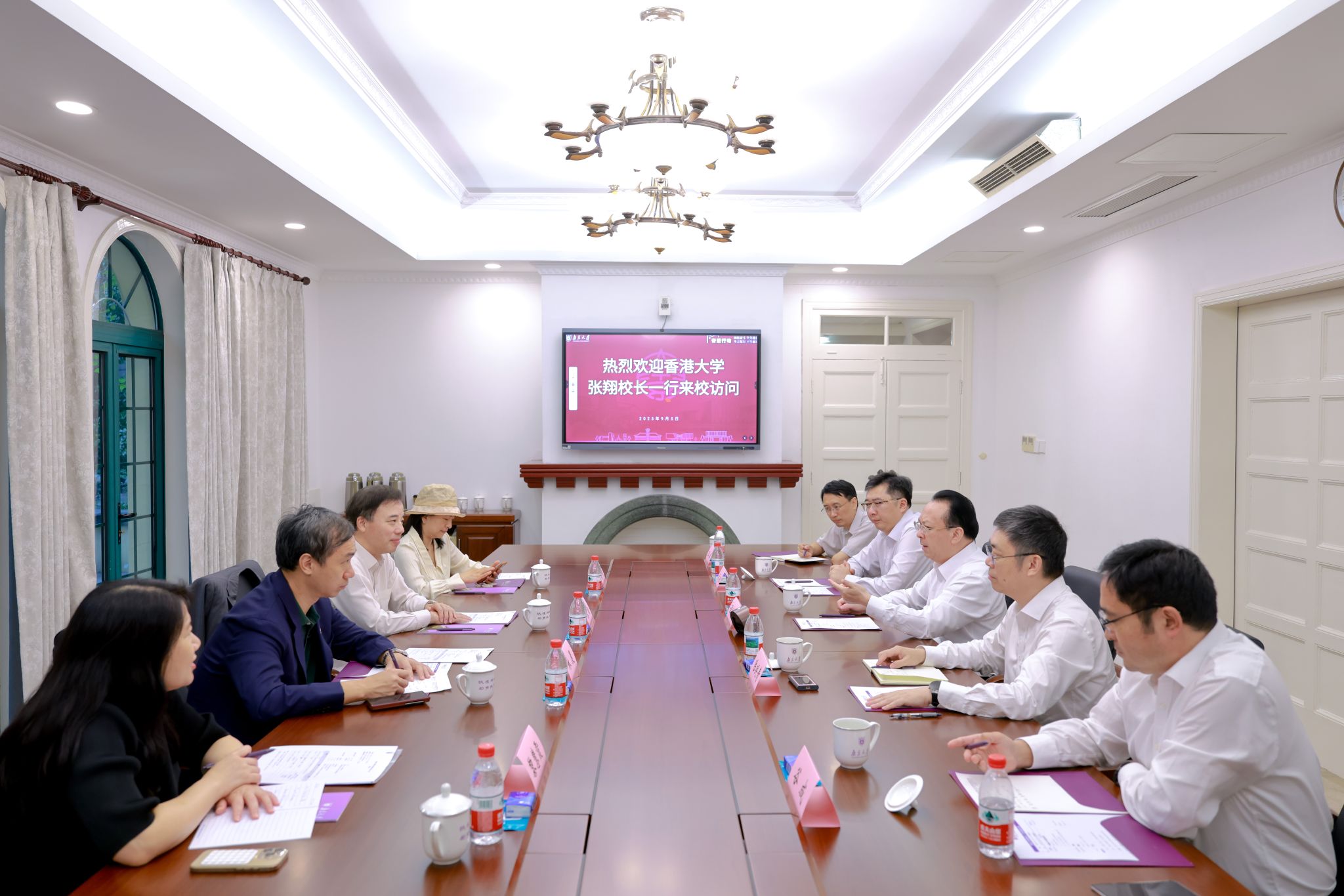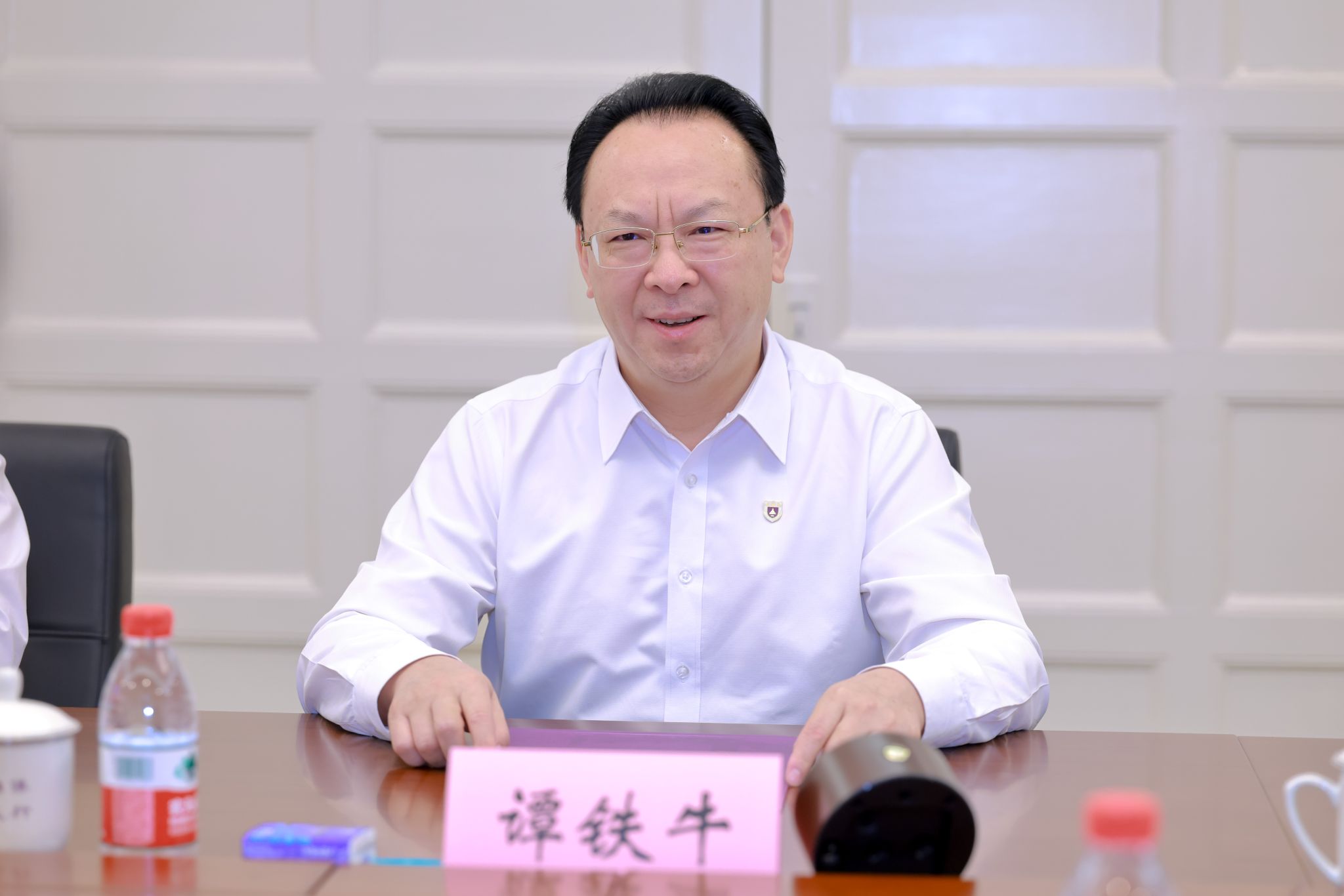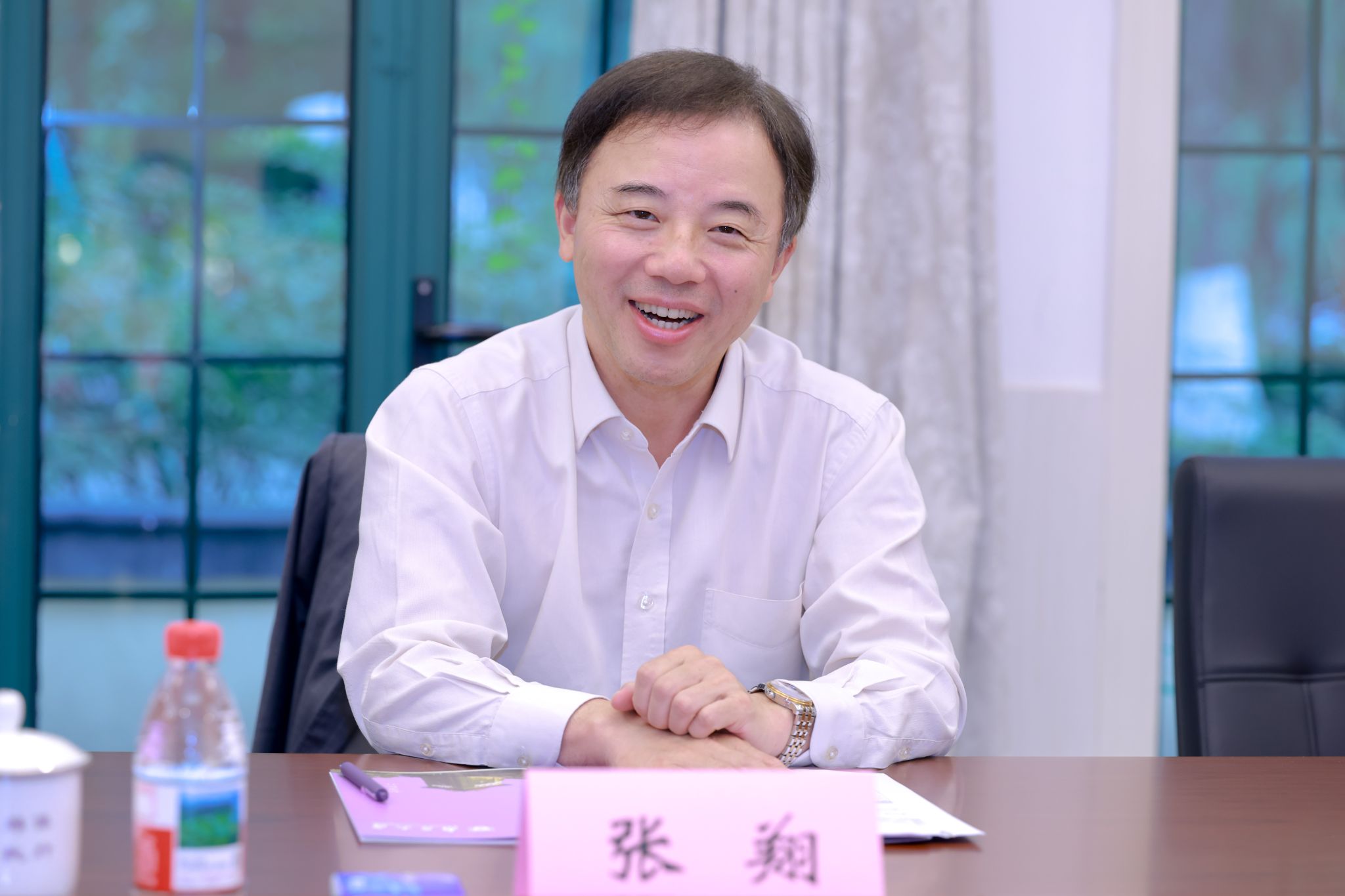On September 5, Zhang Xiang, President of University of Hong Kong (HKU), Foreign Member of the Chinese Academy of Sciences (CAS), and Nanjing University School of Physics alumnus led a delegation to visit Nanjing University. Tan Tieniu, Chair of NJU CPC Council and Academician of the CAS met with the delegation on Gulou Campus. Both sides engaged in discussions on deepening scientific research exchanges, student cultivation, international cooperation, and other areas, jointly mapping out a new blueprint for collaborative innovation and strong partnership.

"Welcome home!" Tan Tieniu extended a warm welcome to Zhang Xiang and his delegation on behalf of the university, and fondly recalled the deep friendship established with President Zhang during his work in Hong Kong. He briefly introduced to the guests the long history and profound heritage of NJU, as well as the educational achievements made in recent years through the implementation of the "Forging Ahead Initiative" and deepening reform and innovation, especially the new layout and practices of developing new engineering disciplines relying on the Suzhou Campus and building a chemical, biological, and pharmaceutical highland based at the Pukou Campus. Tan Tieniu stated that NJU unswervingly follows the path of internationalization, not only maintaining long-standing exchanges and cooperation with Hong Kong, including the establishment of the "NJU Hong Kong Institute for Advanced Studies" currently under preparation, but also extensively conducting international cooperation in Europe, Africa, Southeast Asia, and other regions. As "vanguards" in Jiangsu and Hong Kong regions, NJU and the HKU can expand more diverse and broader cooperation in joint research centers, collaborative student training, sharing of quality faculty resources, and international education. He looked forward to further deepening cooperation between the two universities to play a leading role in promoting Jiangsu-Hong Kong cooperation and win-win development, living up to President Xi Jinping's earnest expectations, and contributing more strength to building a strong nation in education, science and technology, and talent.

Zhang Xiang, on behalf of the HKU, thanked NJU, his alma mater, and Chair Tan for the warm reception, and fondly recalled the wonderful memories of his studies at NJU in the 1980s. "The Physics Building is right next door, and the magnolia trees at the entrance are particularly memorable." He introduced the HKU's recent major achievements in development and highlights of external cooperation, especially in open education in basic sciences, medicine, energy, artificial intelligence, finance, and other fields. He stated that NJU possesses many traditional advantageous disciplines such as physics, astronomy, and earth sciences, and has also achieved remarkable results in new engineering fields like artificial intelligence and intelligent manufacturing. The two universities have enormous potential for cooperation. He looked forward to the two sides joining forces, deepening cooperation, learning from each other's strengths, and continuously innovating in promoting student exchange and training, international cooperation, jointly building open laboratories, mutual faculty appointments, resource sharing, and other aspects in the future, exploring new models for win-win development.

Lin Chen, Vice President of HKU; Li Huixia, Director of Academic Liaison and Mainland Affairs Office of HKU; Lu Yanqing, Vice President of NJU and heads of relevant departments participated in the meeting.
